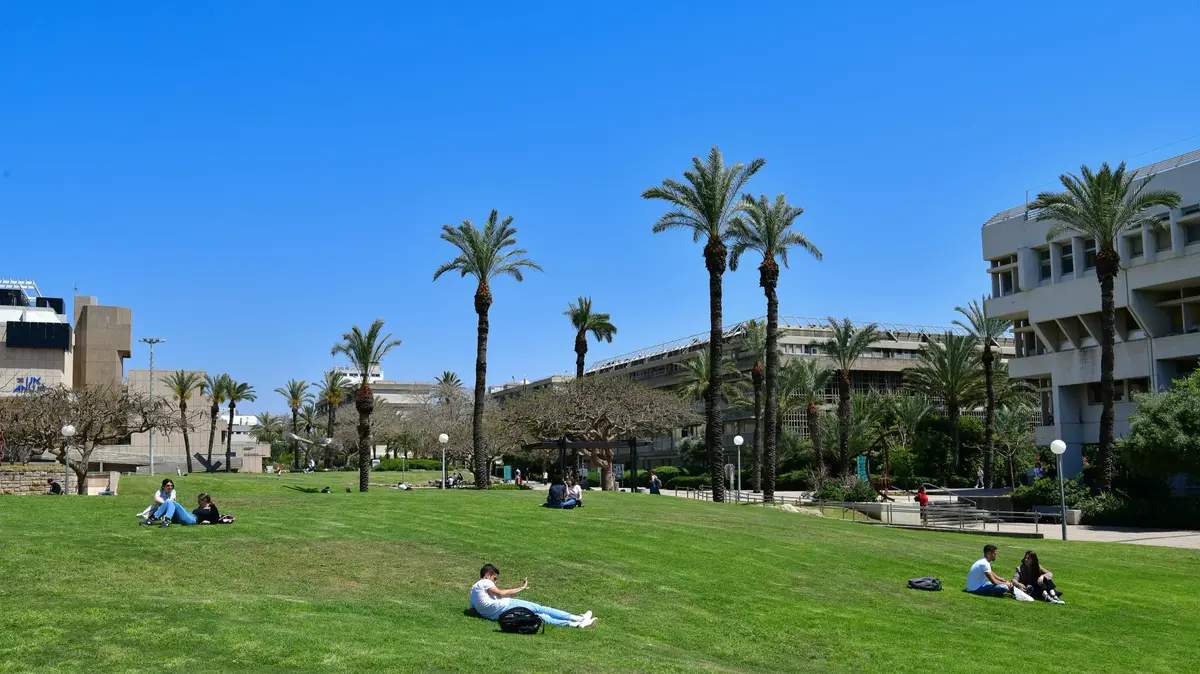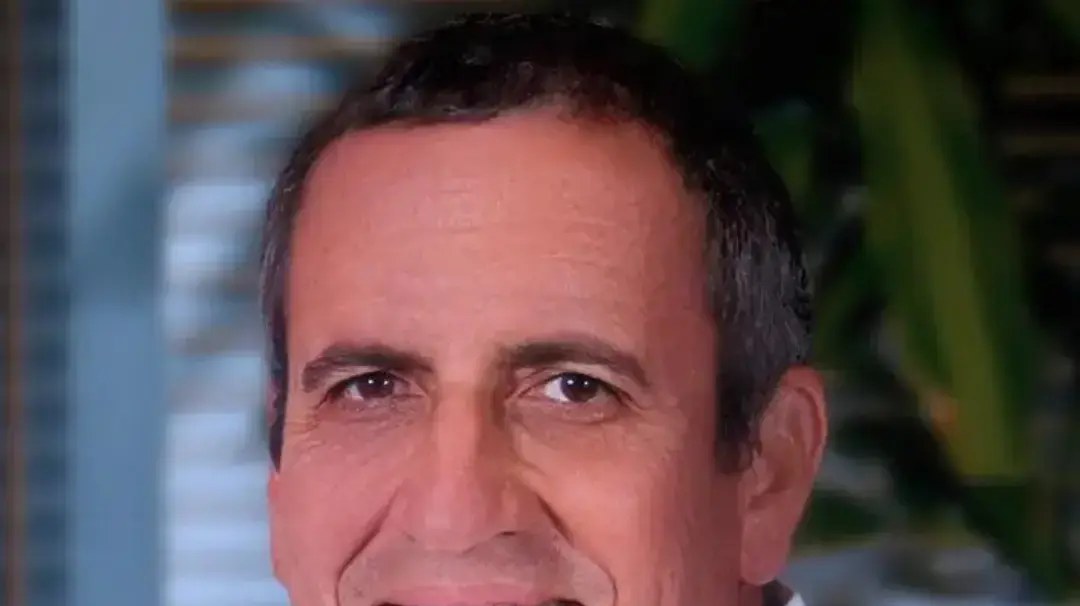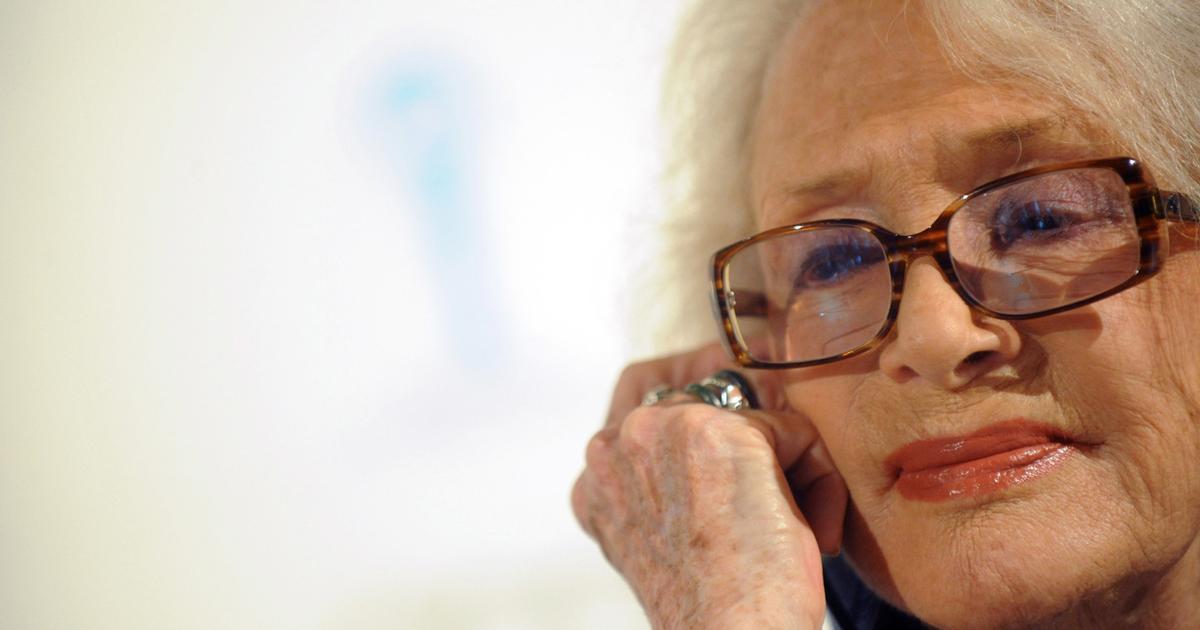Last month, the annual conference of the public law association was held, not before its leaders sent an official letter against the reform of Justice Minister Yariv Levin. This is perhaps the most important legal conference attended by all the senior members of the legal academy and the top of the judiciary in Israel. This is the conference where the President of the Supreme Court, Ester Hayut, gave her strong speech against the reform and received thunderous applause.
Later in the conference, panels were held on legal issues.
In one of them, which dealt with the topic "Is public law on the way to transformations?", Dr. Shoki Segev from Netanya College also participated, as a legal-conservative minority opinion on the panel of five speakers. The panel members' remarks went smoothly as expected from a distinguished and well-connected conference of senior and elderly jurists. All this It changed when Dr. Segev presented a critical position towards the High Court of Justice in his remarks, and was interrupted by interjections by retired Supreme Court Judge Hanan Meltzer. When he finished his remarks, Prof. Suzi Navot remarked to him: "You said that most of the Supreme Court judges are progressive.
I know all of them, and I did not know that there is a majority of progressive judges in Israel.
It's good that you didn't say that they are also leftists with an S."
Segev replied: "We don't know what the judges voted at the ballot box, but we know what they voted in the verdicts. And through the verdicts, you can build an ideological template."
His words were interrupted again, this time by the interjections of former Supreme Court judge Dorit Binish, followed by other jurists sitting in the audience. At Segev, he shouted, "What checks and balances are there besides the High Court?!"
And he replied, "There are many, especially the elections."
This statement infuriated the crowd of judges and academics, who lost their patience.
There were so many calls, that Segev could not continue to present his position.
The organizer of the conference had to stand up and calm the crowd, like that several times.
The panelists received applause from the audience.
Segev in the opinion of the conservative and critical minority encountered considerable hostility.
As far as Dr. Segev and other conservative jurists working in the academy are concerned, this is not an unusual gesture resulting from the great tension created by the Minister of Justice's legal reform. Many conservative jurists with whom we spoke described this as routine in law faculties. Last week we published an interview with Prof. Yoav Dotan, one of the senior jurists In Israel, Dotan, who has a conservative and critical stance towards the High Court, said that "in the past, a doctoral student at the Faculty of Law who held positions of my kind, did not bother to highlight them."
He also said: "Those who express positions like mine are identified as right-wing, which of course is not true. If you have positions like mine and you don't want to be identified politically as such, you simply won't express these positions."
According to him, a researcher who holds the prevailing position in the academy and the High Court, known as the activist or progressive, "does not live in conflict, sometimes it also rewards you in the academy.
It's much more convenient to be part of the party than to come and spoil it."
to be an academic minority
"In constitutional law and the conservative jurists are definitely a small minority, certainly those who came out of the closet as such, but in other areas of law such as private law, corporate law, contracts and intellectual property, the conservatives are more prevalent," explains Dr. Shoki Segev and emphasizes: "The problem is that most of the struggle for The image of the state is not found in these fields, but in the administrative and constitutional field, where we are a minority."
Segev (50) is a lecturer in constitutional and administrative law at Netanya Academic College.
He grew up Jewish in a Persian-Bulgarian family in a traditional way of life and attended the comprehensive high school in the city.
He did his doctorate at the University of Virginia in the USA, and his resume includes many academic articles, most of them in the critical legal-conservative approach.
Dr. Shaul Sharp, a lecturer in constitutional law at the Peres Academic Center, also thinks so. "If you refer only to public law, then yes, the conservative jurists are in a small minority." Dr. Sharp grew up in Bat Yam in a religious-nationalist family.
He completed his first degree at Ono College, and his second and third degrees at Bar-Ilan University.
He wrote his doctoral thesis on "Direct Democracy, the Normative Controversy and Judicial Review", under the guidance of Prof. Gidi Sapir, one of the leading conservative jurists in Israel.
Among other things, he published a research article titled "Political Judge in a Democratic Society", which presents a critical thesis to the book "Judge in a Democratic Society" written by former Supreme Court President Aharon Barak.
The legal terms "conservatism" or "activism" are rough definitions that have not been characterized academically, yet Segev and Sharp set general lines of identification.
"Conservative jurists advocate judicial restraint and the limited power of the Supreme Court," says Dr. Segev. "They attribute respect to democratic processes and democratic and political institutions.
Conservatives combine the central value of democracy, which is the rule of the majority, with this type of liberalism that places the value of freedom as central, a belief that fuels individual choices.
Protection of the individual from the government, in addition to protection from the court."
This is the point where the conservative criticism of the judicial system begins, explains Segev.
"An understanding that the Israeli court has amassed enormous powers and powers, which lead it to disrespect the democratic process itself. The court advocates a set of ideas identified with a certain political group. Conservatism is characterized by respect for tradition, and when a legal conservative says 'a Jewish and democratic state,' he means Jewish In its national and religious sense. For the progressives, the Jewish component is interpreted as populist-universal, that is, the flattening of the Jewish idea of the state (Such criticism was voiced by Supreme Court Judge David Mintz in the Nationality Law ruling, p.s.).
In other words, the conservative and progressive camps have completely different ideas, and they set a different goal for the image of the State of Israel."
"I separate a person with conservative views such as religious nationalism and a person with a conservative academic mind," says Dr. Sharp. "A conservative advocates evolution and opposes revolution.
He has patience, he thinks in terms of decades, and even if he wants to promote the existing situation, he will do so in a moderate and not drastic way.
The conservative view prefers political results because they come after a public discussion based on agreements and compromises.
The political-democratic process is not perfect, but it knows how to weigh public elements and different sensitivities, and the result is agreed upon by the majority.
On the other hand, a judge is a single person, a maximum of three in the composition, and when he tries to fix the world, he skips over the political and social results.
Through one judgment he imposes a result on the company, sometimes also in an artificial way.
The advantage of activism is that it achieves a result very quickly, but this result is harmful because it skips the assimilation of a second-generation idea, like building a building without important cognitive foundations.
By the way,
This is basically what Yariv Levin's reform is doing, claiming to anchor a conservative worldview, but doing so with activist revolutionary tools.
"In the constitutional field, it is not a revolution. On the one hand, it anchors the authority assumed by the High Court of Justice to invalidate laws because this is how the law in Israel has been practicing for 30 years;
And on the other hand, it limits this tool.
But yes, the reform is going through a blitz with a revolutionary characteristic that I do not share.
Although I think she is good, you have to work slowly.
Enact step by step.
In the administrative field, I think that the cause of reasonableness should be reduced, but not abolished as was done in the reform.
I'd like to hope it's just a goat.
This also characterizes the conservative camp, it is diverse and there are many disputes, compared to the crowding of the ranks in the other camp which forbids saying anything in praise of any section of the reform."
Afraid to express an opinion
The legal reform of the Minister of Justice flooded the legal academy with petitions of protest.
With the exception of Prof. Dotan, conservative researchers and lecturers did not sign them, which for the first time flooded the picture of the situation: conservative jurists are at a significant numerical disadvantage in the academy.
"Law faculties have what is known as 'legal education'. The instillation of values is very clear," explains Dr. Sharp.
If there wasn't someone who lay on the fence before me, who fought the hard wars, who researched and suffered academically, it is not certain that I would have been able to hold my own socially and professionally in the legal milieu.
In the end, a person wants to be part of the group.
Even those who grew up in a conservative society, when he arrives at the legal academy, he begins to assimilate a progressive view.
How long can you hold a position unlike everyone else?
"I leaned on the broad shoulders of Prof. Sapir, but I saw how people I grew up with in the same places and from the same background went in other directions. This is the atmosphere in the academy. Only late in my studies did I discover that I was actually not alone. There are books, researchers, thinkers and studies that establish the world view mine, but the academy did not teach me them. It was an experience to discover that my values have an extensive academic basis. There are lawyers today who are in the closet, who are afraid to express a position and investigate sensitive issues. They want to have a standard, want a committee to publish their article, want not to experience alienation From a social point of view, it's hard to be different, to be different. All the faculty say something, and I'm the only one who says otherwise. It's already happened to me that someone came to me and said, 'It's good that you said what you said, I didn't dare to say.' to criticize the High Court, fearing that it will result in a professional delay in their promotion."
"The Supreme Court influences the legal academy," says Dr. Segev. "Until recently, non-conservative judges were promoted to the Supreme Court, so a conservative judge with ambitions would prefer not to express his views.
Many of today's lawyers worked in their early years as interns or as legal assistants to supreme judges, most of whom have an activist-progressive line.
This is a strong majority opinion that influences academia.
There is a professional membership procedure.
The academic mission becomes a defense of the court and not a criticism of it, as was expected of an academy.
This defense mainly harms the court itself.
The role of the academy is to review and monitor the court, and when it does not do this, the court has no checks and balances.
The public does not read judgments, but academics have the resources to do so, and it is their job to review whether the judgments meet the test of reason.
"All this does not happen by chance, but because there are judges who are involved in the academy, behind the scenes as well. They make sure to put their assistants and interns in all kinds of positions in the academy. The fact that there is a conservative camp at all and that over time it succeeds more and more in settling in hearts, is a big and not obvious thing. The progressive-activist-Barkey side delegitimizes conservatives. This contradicts the whole essence of academia, discussion, exchanging ideas and establishing arguments. Delegitimization makes us ideologically poor."
In what way is delegitimization manifested?
"The petitions against the reform, for example. The meaning of the petitions is to mark who is with me and who is not. This is a violation of academic freedom. What does a petition mean? It tries to say, we are the majority with the professional expertise, so it is implied that all the others do not have such expertise. A majority decision is appropriate in the political arena , but in the academic arena they are supposed to decide through arguments, not petitions. The majority in academia should know that the minority has the right to voice what it has to say. Students come up to me and say, 'This is the first time we've heard this thesis.'"
on an ideological assembly line
The situation described by Segev and Sharp, according to which the law faculties act as an ideological production line and indoctrinate the students, is not new.
In the 1980s, a new trend arose in the USA, the "critical approach to law", which attacked the American legal academy. The leader of the approach was Prof. Duncan Kennedy from Harvard University. He wrote even then that "since students believe what they are told, explicitly and implicitly, about The world they enter, they behave in ways that fulfill the prophecies of the system about them and about this world.
The students walk in the furrow that was paved for them, and even plow deeper into it." In an article that analyzed this current, Prof. Yishai Blank of Tel Aviv University wrote that this approach actually claims that "the law school is simply another cultural institution that educates the individuals in values, assimilates them in their daily lives and makes us all submissive."
At universities in the US, offices were established whose role is to diversify the student population. They succeeded in integrating minority populations, such as blacks and Hispanics, and also women who were a minority to attend the legal academy. However, a 2013 study presented the researchers with the reality of identity politics.
Before data collected by James Lindgren, universities managed to bring about ethnic and gender diversity, but created ideological uniformity.
According to the study, even after 40 years of population integration, the largest minority group among the teaching staff for law in the US are Republican men and women. That is, most of the academic staff in US law schools is identified with the Democratic Party - and is far from ideologically reflecting the American public.
Secretary of another country?
Maybe.
The college revolution
Segev and Scharf say that there is more academic freedom in the colleges, because the student population is more diverse than the one in the universities.
"At the Peres Academic Center, headed by Prof. Ron Shapira, who is a conservative jurist himself, the opposite situation has arisen. At the conference we held on the empowerment clause, the students applauded me and Prof. Shapira. They did not go through the indoctrination of the universities. They came from homes with a conservative worldview , and in college they felt free to express it.
"The colleges gave equal opportunities even to those who were not part of the elite and the legal milieu," says Segev.
"They also allowed young lecturers from other populations and with other ideas to enter the teaching staff. There is equality of opportunity in the deepest sense of the word."
Prof. Yuval Albashan is considered one of the leaders of the college revolution in the legal academy.
He opened special courses for Arabs and ultra-Orthodox in the law school at Ono College, and these are already reaching key positions in the public service today.
"Every year we have about 50 students from the Ethiopian community," says Albashan.
"There is no doubt that the private colleges are the most diverse in academia, also ideologically. The universities reproduce themselves generation after generation. This is a non-meritocratic principle. The universities strive for academic excellence, and they measure it through a rating that is professional but in practice discriminatory. For example, publishing articles in journals the most prestigious in the USA.
After all, the majority of American academia leans absolutely democrat, even progressive.
Those who are not in positions that correspond to the Democratic Party and its progressive edge, will not receive recommendations and publicity on reputable platforms or grants.
The academy works like a mental order, the boundaries are clear as to what is allowed and what is not.
are now signing petitions against the reform,
"It has always been this way. During Barak's time as supreme president, only a few in the academy, such as professors Manny Mautner, Ruth Gavizon and Yoav Dotan, dared to criticize the High Court of Justice.
The whole academy aligned according to Barak.
The debates that still somehow remained were within the lightning frame.
After he retired, slightly more dissenting voices began to be heard.
It's sad, because the academy is supposed to be the most critical place there is, where people can say anything that is forbidden within the framework of academic freedom.
Attack both Hayut and Levin, and say Amen to no one.
During the disengagement period, I tried to organize a petition against the violation of freedom of expression, and I also wrote articles about it.
Jurists who today sign petitions for democracy, then did not dare to join, even though they understood that the treatment of the demonstrators was anti-democratic and contradicted the basic principles of the system.
Why do we need an academy that aligns with the centers of power?"
And how do the colleges break the academic structure?
"In the colleges there are many more students from the periphery, Mizrahi. They come to the college and challenge the existing order, they are not ready to accept. They come from home with charges that challenge the lecturers. In the universities, the thinking is uniform. Dr. Shuki Segev is one of the brilliant legal scholars whose future is still ahead of him.
But he is 'fascist and dangerous', who will promote him in the universities?
Imagine how much a senior lecturer has to overcome himself when he examines the academic work of a conservative jurist.
The result is that the academy is made of one intellectual skin, it looks more like a Torah yeshiva.
No wonder you only hear voices supporting the reform in colleges.
"After all, if the entire faculty signed a petition, and I as a doctoral student or a young doctor depend on the Guardia to receive my rank, how could I not sign? I certainly wouldn't challenge them and certainly not at public conferences. At many conferences in the academy, Dr. Aviad Bakshi is invited to sing in the choir, why?
Because he is an outsider, he is one of the only ones who don't care.
See what prices a great legal scholar, the late Prof. Ruth Gavizon, paid for sticking to her original positions, what public positions were denied to Prof. Manny Mautner because of his critical positions, and it is still not clear why there are almost no jurists who go against the system? These two great luminaries paid a price Heavy. What message does this send to the students?"
Dr. Segev nevertheless wishes to conclude with an optimistic view of the future. "Today the situation is already better than before, even the top is a little more diverse," he says. "Despite everything, the conservative camp is developing, because the intellectual agitation today in the legal academy is mainly there.
The research is original and the writing is very interesting.
The new generation not only made the strictures logical and came to adhere to judicial restraint like the previous generation of conservatives, but relied on deep classical conservative thought.
Its foundations are more firmly established.
In the next fifteen years we will see the rise of this camp."
were we wrong
We will fix it!
If you found an error in the article, we would appreciate it if you shared it with us















